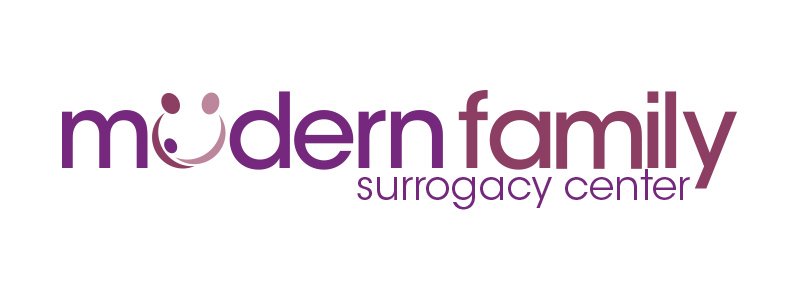7 Reasons People Choose to Use a Surrogate
Is Surrogacy the Right Solution for You?
Surrogacy has emerged as a transformative solution, enabling individuals and couples to realize their dreams of parenthood. Modern Family Surrogacy recognizes the diverse motivations behind this decision, acknowledging that every individual and couple embarking on the surrogacy journey has their unique story. In this blog post, we delve into the myriad reasons someone might choose surrogacy, highlighting the incredible possibilities it offers.
Surrogacy has emerged as a transformative solution, enabling individuals and couples to realize their dreams of parenthood. Modern Family Surrogacy recognizes the diverse motivations behind this decision, acknowledging that every individual and couple embarking on the surrogacy journey has their unique story. In this blog post, we delve into the myriad reasons someone might choose surrogacy, highlighting the incredible possibilities it offers.
Infertility Challenges:
Infertility is a deeply personal and emotionally challenging journey for many. For couples struggling with fertility issues, surrogacy can be a ray of hope. Whether it's due to medical conditions, genetic disorders, or other complications, surrogacy offers an avenue for individuals and couples to experience the joys of parenthood despite these obstacles. It provides an opportunity to build a family and create a lasting legacy.
Same-Sex Couples:
In recent years, society has become more inclusive and accepting, empowering same-sex couples to pursue their dreams of becoming parents. Surrogacy enables them to fulfill their desire to have a biological child, ensuring a strong sense of connection to their family lineage. Whether it involves using one partner's sperm or eggs or seeking the assistance of a donor, surrogacy allows same-sex couples to experience the journey of pregnancy and childbirth together.
Health and Medical Considerations:
Some individuals may face health risks or medical conditions that make carrying a pregnancy to term unsafe. Surrogacy provides a safe and viable alternative for individuals with conditions such as heart disease, uterine abnormalities, or recurrent miscarriages. By entrusting the gestational process to a surrogate, they can safeguard their health while still realizing their dreams of having a child.
Age-related Challenges:
For individuals or couples who decide to start their families later in life, surrogacy can offer a practical solution. Women over a certain age may encounter fertility issues due to declining egg quality or other factors. Surrogacy allows them to explore alternative paths to parenthood and experience the joy of raising a child, regardless of their age.
Career and Lifestyle Considerations:
In today's fast-paced world, individuals and couples often face demanding careers or lifestyles that may not align with the physical demands of pregnancy. Surrogacy provides a way to balance professional aspirations with the desire to have children. By entrusting the gestational journey to a surrogate, intended parents can focus on their careers while preparing emotionally and practically to welcome their child into their lives.
Previous Pregnancy Loss or Trauma:
Experiencing the loss of a pregnancy or traumatic childbirth can be devastating. For individuals or couples who have faced such challenges, surrogacy offers a chance for healing and hope. By working with a surrogate, they can navigate the surrogacy process with the support and understanding needed to overcome past traumas and create a positive, joyful experience.
Genetic Concerns:
Some individuals or couples may carry genetic conditions that they do not wish to pass on to their children. Surrogacy allows them to conceive using their own or donor gametes, while simultaneously ensuring that the child does not inherit the genetic condition. This option provides peace of mind and a fresh start for creating a healthy, genetically diverse family.
Empathy and Compassion:
Surrogacy also stems from the profound compassion individuals have for those who cannot conceive or carry a pregnancy. By choosing to become a surrogate, these incredible individuals selflessly offer the gift of parenthood to those in need. Surrogates empower intended parents by helping them overcome obstacles and fulfill their dreams, forging lasting bonds along the way.
REASONS TO USE ONE FORM OF SURROGACY OVER ANOTHER
There are advantages and disadvantages to each type of surrogacy, so the best option will depend upon each specific situation. One of the advantages of traditional surrogacy is that it typically involves a lower cost than gestational surrogacy. This is because there is no donation fee, and if the first effort at insemination does not work, it can be attempted again in a matter of weeks rather than several months.
In addition, with the process of traditional surrogacy, it is unlikely that the surrogate will need to take additional fertility medication. It is important to note, though, that with traditional surrogacy, the surrogate will be the child's biological mother.
With gestational surrogacy, because the sperm and the egg both come from the intended child's biological parents, the surrogate will not be biologically related to the child and is only used for carrying purposes. This can be of extreme importance to many parents.
Because many women are capable of producing healthy eggs, yet are not able to become pregnant, they are ideal candidates to choose a gestational surrogate, as are those who may be able to become pregnant but have a history of miscarriage.
Gestational surrogacy is more costly, however than traditional surrogacy. This is because of the additional procedure of obtaining both sperm and eggs from the biological parents versus just the father's sperm for use in traditional surrogacy. Therefore, from a financial standpoint, traditional surrogacy may make more sense for some individuals or couples who wish to have children but may not have the financial wherewithal to pay for the gestational surrogacy process.

